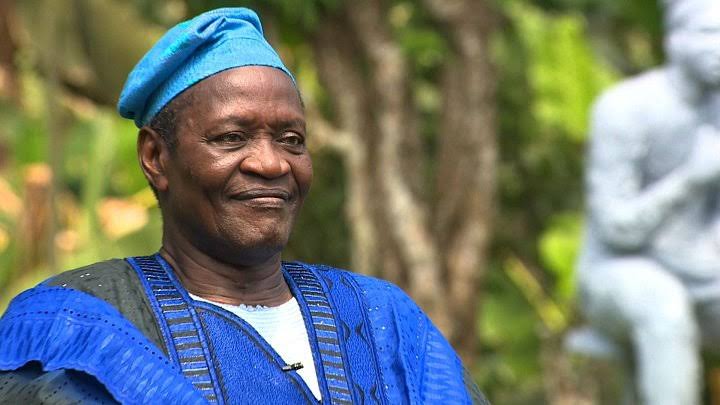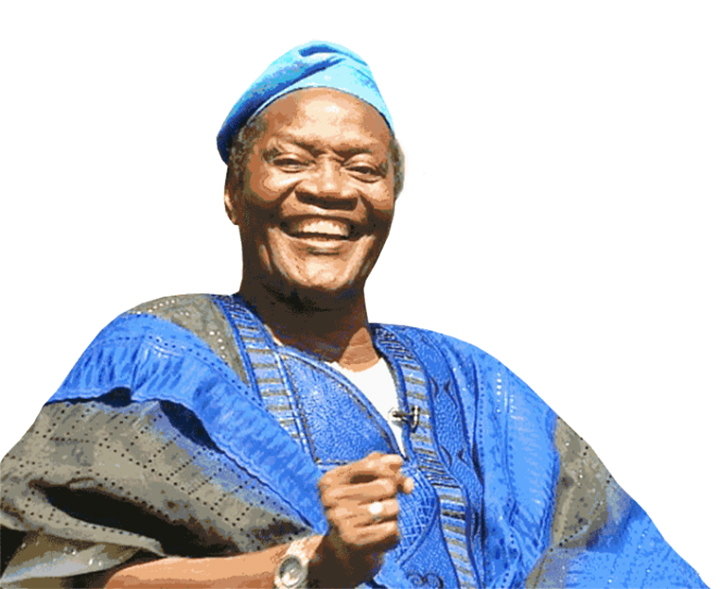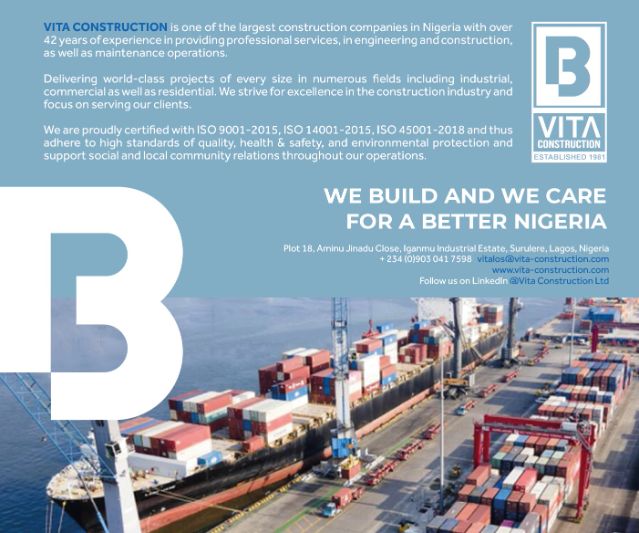Aníkúlápó is the man who bears death in a pouch, not Jimi Solanke. Solanke knew a braggadocious name couldn’t stop death. So, when death came calling, Solanke followed it without fear. But Solanke wasn’t afraid of death, he was afraid of life – this he told me many years ago at the backstage of the Oduduwa Hall, Obafemi Awolowo Univerity, Ile Ife, when I sneaked up on him.
It is true, time is a virus that corrupts memory. Despite its limitation, however, memory remains nature’s hard disk embedded in the skull of every mortal. And, when I bolted from the Oduduwa Hall congregation – in pursuit of Solanke – to the backstage, I never knew my inquisitiveness would someday memorialise his memory.
I can’t remember the particulars of the event that was held in the architectural wonder called Oduduwa Hall many, many years ago. But I remember Baba Agba, as Uncle Jimi Solanke was popularly called, being the moderator of the event.
As his baritone soaked the hall in honey, my mind journeyed down memory lane, marvelling at the lanky enigma before the audience – the great Jimi Solanke – world-class storyteller, actor, folklorist, singer, playwright, poet, dancer, guitarist, drummer, cultural aficionado and compere extraordinaire!

“Tunde, you must interview this wizard,” I told myself. So, I bided my time, looking for a break. My lucky break came when the session went on a break, and Baba Agba sauntered backstage. I sneaked away from my reporter colleagues, melted into the shuffling crowd, and went after him.
“Good morning, sir!” “Good morning, my dear,” he replied, the glint in his eyes was welcoming. Wow!! I couldn’t believe I was talking live with Mr Voice himself. My heart raced like a rabbit in a park. “My name is Tunde Odesola; I’m from PUNCH newspapers,” I identified myself. “Oh, PUNCH, that’s my paper,” he said. “Thank you, sir,” I gushed. “It’s a dream come true talking to you, sir.” He eyed me with his big eyes.
I didn’t bring out my tape recorder yet because I didn’t want him to see me as a bother. I continued, “I thought you came out to smoke, sir” “Oh, no! I quit smoking,” he said in his rich voice. “You quit? Why? Health reasons?” I fired a threesome.
“I’ll tell you the short story. Someone died in my family and relatives converged in my house to discuss the burial. I stepped out to smoke. When I stepped back into the house, it was as if I carried faeces with me into the house.
Everyone turned their noses up, looking at me as though I was a strange object. I felt embarrassed. That wasn’t the first time I would step into a gathering after smoking a cigarette, and people would feel uneasy. To make people not feel awkward by my smoking, I decided to stop. They say smokers are liable to die young, I’m no longer young, 70 is around the corner,” he said with a grin.
No matter the manner of death that kills the elderly, his cranium won’t vanish; kò sí ikú tí yíò pa àgbàlagbà, tí a ò ní bá poolo orí è. This proverb means no matter the situation, the elderly must speak the truth at all times, without fear. Solanke exemplified the letters and spirit of this proverb through his art.
There, at the backstage of Oduduwa Hall, Solanke wasn’t afraid of telling me the truth about his struggles with smoking, he wasn’t afraid of facing the challenge too. Solanke is the citizen Nigeria desires but does not deserve.
The same thing cannot be said of Fuji music maestro, Alhaji Wasiu Ayinde, aka K1 De Ultimate. Wasiu is far beneath the league of Solanke and his kindred, Tunji Oyelana. Wasiu is the citizen Nigeria desirously deserves – tribalistic, selfish, ignorantly endowed and materialistic. The Nigerian citizen epitomised by Wasiu sees music as a means to a cash-and-carry end and not a selfless tool for social change.
In the heat of the economic hardship suffered by Nigerians during the Olusegun Obasanjo presidency, Wasiu, in 2006, lifted his voice up to God, singing unto Him to eclipse Obasanjo, “Ba wa mu baba kuro..” But Wasiu’s tongue appeared super-glued to his palate and his ears stuffed with palm oil wool when the herdsman, General Muhammadu Buhari, misruled the country for 8 years as he didn’t give Buhari, who’s the worst Nigerian leader ever, the same treatment he gave Obasanjo.

Wasiu has kept a deafening silence since the economy further nosedived after his tin god, President Bola Tinubu, assumed power in 2023. In societies emancipated from mental slavery, Wasiu’s action would’ve been met with a backlash that would affect his musical image and fortunes, but Nigeria is Babel, where the Toad’s croaking is music to the ears.
Did Solanke love children? No. He worshipped them. He dedicated his life of storytelling to them. In his programme, Story Land, Solanke would dance like a five-year-old, giggle like a preteen on his first excursion, and yet pass across his teachings with the charm of sage. Oh, how I love him!
Solanke saw the wicked world through the innocent eyes of the child and armed himself with a paddle strong enough to steer his canoe, singing on his earthly journey his songs of wisdom that include Baba Agba, Onile Gogoro, Eje ka jo, Jenrokan, Na Today You Come, among others.
Since he travelled to America after graduating from the Theatre Arts Department of the University of Ibadan in 1969, before his eventual return to Nigeria in 1986, Solanke produced many albums such as In the Beginning, Ase, Orin Orisa, Storyteller, America Has Got Magic, Multiplicity of Praise, Hidden Gold, Once Upon a Time, among others. Gesamtkunstwerk is a German word that means total art. Solanke was a Total Man, who practised Total Art, giving his totality to his art.
That was why Solanke, the voice of the narrator in the Nollywood blockbuster, Jagunjagun, was ever happy, contented and respectable. That was why he was never a servant at Bourdillon. However, this is not to say Wasiu has no class at all. Wasiu has his own class and remains a savant of Fuji, with great hits under his belt. But when compared with Solanke, shoe get size.
At this juncture, I want to wear the Solankean robe and see the world through the eyes of a friend’s 11-year-old child. ’Busola Durojaiye was a younger colleague in the pen-pushing profession. She distinguished herself at the Osun State Broadcasting Corporation, Osogbo, in the early 2000. She has a good grasp of the sociopolitical and economic situation of Nigeria, making her my go-to person on Nigerian gists.
Last week, our talk centred on the exorbitant prices of foods, goods and services across the country. ’Busola has a wicked sense of humour. “Ara n kan everybody ni Nigeria o, everybody is touchy. Everybody is sick. Even ‘your’ daughter (name withheld) is sick,” she said. “Ha, kilo se, what’s she sick of,” I asked, worried.
“On Saturday, her boarding school housemistress called, saying Angel (not her real name) was sick with fever. The housemistress said she had been taken to the hospital for a Widal Test, whose result was being expected. I told the housemistress to give the phone to Angel,” ’Busola explained.
“When Angel came online, she said she had a high fever. Orí mi kó kó fò lo ná; I was alarmed. High fever ke? Angel said she wasn’t the only one having a high fever in the school. She said about 12 students were affected, including two of her close friends, Dab and OmoT (real names withheld). Then, in a conspiratorial tone, she said, ‘The doctor and nurse said I have no blood at all’.
“I asked her if the doctor and the nurse told the housemistress about her having no blood at all. She said no. She said the doctor and the nurse confided in her only. Angel then told me she knew the remedy to her acute blood shortage. She listed the remedy to include malt drink, ice cream and jollof rice from a particular restaurant. I told her it was blood that she needed, but she said ice cream, malt drink and jollof rice produce better blood. She said students, including her two friends, whose parents had sent money for the cure, were already getting well.
Mother sent N11,000 to daughter’s housemistress for the cure of blood shortage. When mom called the next day, Angel’s voice was clearer. “How are you feeling now, Angel?” mother asked. “Blood is returning to my body now,” she said. “How did you know blood is returning to your body,” mother queried. “I can feel it in my system,” daughter answered.
Solanke understood the ways of children. He must have loved cartoons, too. Nigeria is a huge cartoon; a cruel, unfunny joke, yoking the storyteller and his audience. At 63, Nigeria remains a child, its spine cracked by corruption, nepotism and evil leadership.
When will blood return to the veins and arteries of Nigeria? When, I ask?
Email: tundeodes2003@yahoo.com
Facebook: @Tunde Odesola
X: @Tunde_Odesola











